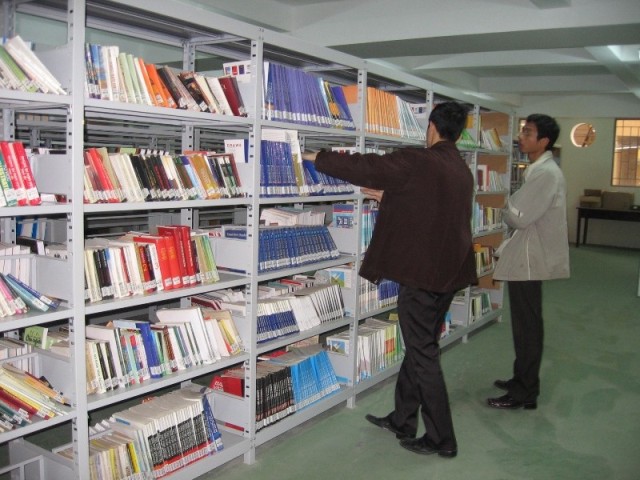
Hoang Van Chau, rector of the Hanoi Foreign Trade University, said imported textbooks have been used at his school, but only for special training programs for talented students and joint training programs with foreign partners.
“We do not intend to utilize foreign manuals in a large scale because of limited financial capability,” Chau said. “And I think that not all foreign curriculums and textbooks will be suitable to the Vietnamese conditions."
The Posts and Telecommunication Institute of Technology (PTIT) regularly buys foreign books as per the requests of lecturers. This costs hundreds of millions of dong every year. The lesson plans are mostly in electronic versions which can be found at the institute’s data center for students’ and lecturers’ reference.
Meanwhile, the textbooks officially used for the lessons are compiled in accordance with the curriculum set by the school.

“It would be okay to use foreign books as the materials for reference. However, it would be problematic if using all of the foreign textbooks for the training programs,” said Le Huu Lap from PTIT.
He noted that the curriculum and textbooks used in teaching need to be suitable to Vietnamese conditions.
“Foreign schools always allocate a lot of time to apractice. Meanwhile, the current conditions do now allow us to do this,” he noted.
Lap went on to say that foreign curricula and imported textbooks alone are not enough to renovate higher education.
“You will need to have the teaching staff qualified enough to use the textbooks and give lectures to students,” he noted.
“It will be quite within the reach of the lecturers who finish school in Europe or the US. However, it would be a big problem for the lecturers from Russia,” he said, adding that the key lies in the lecturers’ qualification.
Bui Thien Du, president of the Phuong Dong University, also said it is necessary to use foreign textbooks selectively, i.e., the school does not copy 100 percent of the foreign textbooks’ content, but only uses the parts suitable to Vietnamese students.
While Dam Quang Minh from the HCM City Economics University said that using foreign textbooks is the only good choice for higher education, other educators do not think this is a good idea.
“Using all of the foreign textbooks would be good for the training establishments which train students in accordance with foreign curricula for specific working programs,” a university lecturer noted.
“For example, a student can study information technology at a school which trains in accordance with an Indian curriculum, because he expects to study and work in India later,” he said.